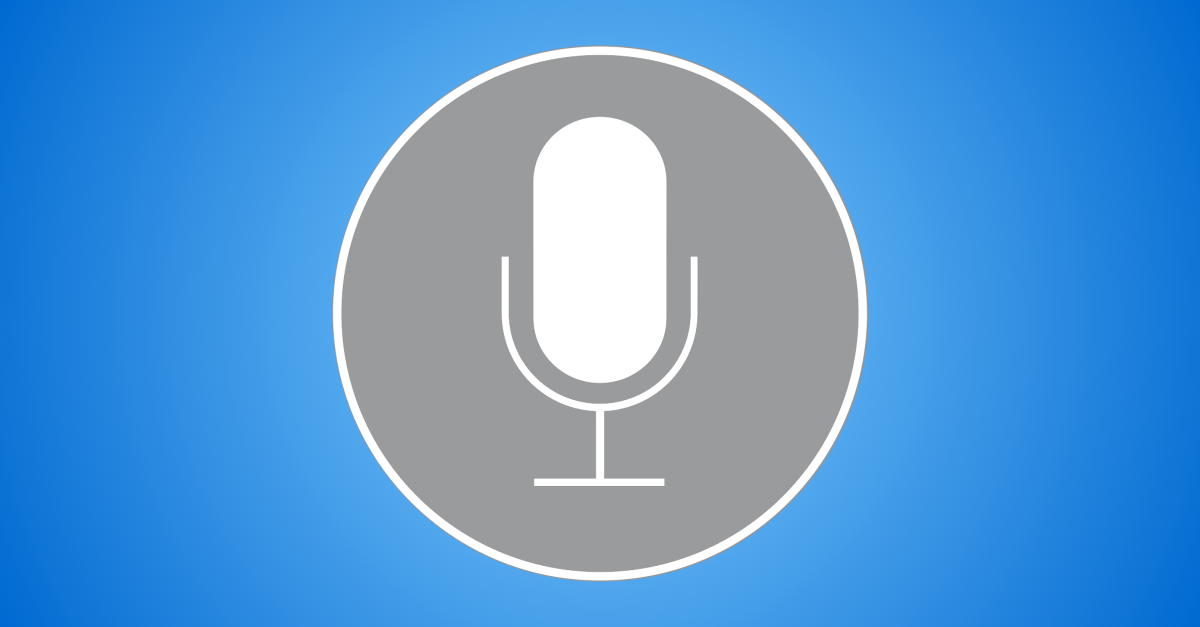 Siri, Apple’s smooth talking voice assistant, seems to get more publicity than just about all other voice recognition systems put together.
Siri, Apple’s smooth talking voice assistant, seems to get more publicity than just about all other voice recognition systems put together.
We suspect there are lots of reasons.
Siri was the first widely-deployed speech recognition system that vaguely worked; she talks back to you in calm tones with a well modulated accent; she’s (apparently) imperturbable; and to ask for her assistance, you can simply call her by name, as you might a friend.
→ On Android, you don’t get to ask your questions to someone called, say, Dave, or Stella, or Naledi, or any other personable-sounding name. You have to summon the empire itself, using the runic incantation OK, Google, which comes out more like a repetitive, ceremonial affirmation than a simple request to run a program for you. [Calm down – Ed.]
Of course, smooth talking only gets you so far, and Siri has had her fair share of privacy concerns, security controversy, and even a little conspiracy theory, along the way.
The Siri scenarios that have caught the public’s attention have been varied, including:
- Concerns about how long Apple keeps the voice snippets that are sent back for processing, and what it does with them.
- Whether having mobile apps listening in all the time, just in case someone wants to ask Siri something, is a bad idea.
- How secure your lockscreen might be when Siri is active, given that she’s supposed to help you bypass the keypad.
- If there’s anything sinister in the fact that Siri calls the cops on you if you mention “9/11”.
Conspiracy theories
The “9/11” conspiracy theory, of course, was easily explained.
Most people don’t refer to the 9/11 terrorist attacks by saying “the eleventh of September” but by saying “nine eleven.”
So Siri errs on the side of caution and treats that the same as speaking each digit in turn, as in “nine one one,” the number for the emergency services in North America.
Conspiracy closed.
But there’s a new “911” Siri mystery doing the rounds.
Why does she call the emergency services when you say, “Charge my phone to 100%”?

As an iPhone user myself (but don’t call me a fanbuoy – it’s for research purposes, honestly!), my immediate reaction was, “Why would you say that to your phone at all?”
Admittedly, I don’t use Siri, mainly because I can’t see the point given that I have all my fingers in good working order.
But, even if you love Siri, why ask her to charge your phone?
Heck, she’s not a battery: either you’re plugged in and charging anyway, or you aren’t and you’re not.
Whiff of mystery
So, this latest story does have the feel of someone casting around to find a special Siri phrase with a whiff of mystery.
Notably, the story carefully includes the apparently-vital but seemingly redundant detail of adding the words “phone” and “to 100%.”
But what else would you be charging if you just plugged in your phone?
Why would you need to be explicit about the amount of charge you wanted, especially given that the charger turns off when the battery is full?
A phenomenon known as irrational numerological empathy might explain choosing a lower limit, such as 71% (close to 1/√2) or 87% (about sin π/3), but not 100%.
So this doesn’t seem like some sort of safeword or duress code, as some have speculated.
→ A duress code is a feature that some alarm systems offer. The regular PIN will turn off the alarm and allow entry, while the duress PIN will do exactly the same, but raise a silent alarm back to base. You can therefore comply with a crook who has you at gunpoint, while covertly calling the cavalry at the same time.
Safety first?
It sounds, if you will pardon the pun, as though it’s a simply case of ambitious, safety-first voice recognition by Siri, when the word “phone”, taken as a verb, is followed by what sound like parts of a three-digit number somewhere in the hundreds.
(Remember, 112 – one hundred twelve in typical American diction – is the global emergency number on mobile networks.)
In any case, the idea of a duress code is that it seems normal.
I don’t know about you, but if someone had a .357 Magnum against my head, I don’t think I’d risk whipping out my phone, plugging it in (or else it wouldn’t be able to charge, would it?) and then carefully but redundantly telling it to charge itself, all the way to full if you don’t mind, careful with that trigger, Sir!
That’s why, in a recent distress story we wrote involving a pepperoni pizza, the victim covered up her emergency call by placing her usual order with Pizza Hut.
She buried her “get 911 to me” message in one of the online order fields, where her rampaging boyfriend didn’t spot it but Pizza Hut staff did.
Rescued!
Don’t try this at home
By the way: even though Siri gives you five seconds to bail out before placing an emergency call for you, please don’t try this at home.
Leave the emergency services for emergencies, eh?
– Phone v. Phone image courtesy of Shutterstock –


Aaron Osler
The secret phrase “charge my phone to 100%” illicits a response “I assure you that’s not within my capabilities” it does NOT call the police in any of my tests.
Rune Cooke
Either I see things like this too late or nothing like this ever works on my iPhone (uk) :P
Paul Ducklin
The Dictation feature on OS X (I have the locally-installed version) seems to struggle with my accent.
I’ve tried the databases for US, UK and Straylan…doesn’t seem to make much difference.
Not that I have tried this phrase, though :-)
tartanrose
I speak Straylan. Born and bred here.
The dictation feature here doesn’t accept me either.
Maybe it’s the years I spent working in the U.S., UK, and, Pluto.
Never mind Paul you are well understood on the 60 second Security.
Thanks for another great informative article.
Microibe
Worst written named security article ever
Paul Ducklin
If I were going to be quite so critical, I’d proofread the six words I’d just typed in before clicking the button that says [Post Comment].
Jeff Lucero
LMAO!
wartech
Fanbuoy?
David Heath (@david_heath)
whatever floats your boat (sorry, someone had to do it!)
Paul Ducklin
Yep, that’s a good way of explaining it. (Many Americans pronounce “buoy” as “booey,” not as “boy,” so the word play isn’t necessarily obvious outside Anglo countries. I now pronounce “fanbuoy” as “fan-booey”, as a way of signalling the nautical metaphor in speech.)
My metaphorical thinking came from the idea that a buoy keeps a steady position when all around is in disorder or uncertainty, and always proudly has its head above water, two positive attributes. But only ever _just_ above water, and that steady position isn’t merely steady but unyielding, two negative attributes.
But your explanation is just as good, a lot simpler, and a lot less pretentious. I might purloin it :-)
Niall Hammond
It does make some sense that saying phone 100 may call an emergency number as it is the emergency number for the police in India. Maybe Apple just got too helpful in supporting major nations emergency numbers elsewhere. Most of us tend to not look up the emergency numbers when abroad and as such it would be ‘helpful’ to treat one nations number the same as saying ‘phone the police’. Mind you with the range of numbers this is not great without consideration of the users ‘home’ numbers as say in the UK 101 is the police NON emergency number and in India it gets the Fire Brigade.
Paul Ducklin
Well, what Siri is hearing (if these reports are true, of course :-) is not “100” but the words “phone to one hundred per cent”, or perhaps “phone to a hundred per cent”. (Most people elide the “per cent” into something like puhsent.)
SubSurge
Phone the 100th precinct?